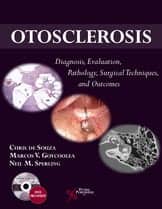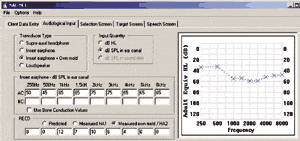Summary: A hearing loss toolkit for general practitioners in Europe was updated to provide enhanced resources and training information, improving accessibility and support for patients with hearing concerns.
Takeaways:
- Enhanced Content: The updated toolkit includes new information on managing conditions associated with hearing loss, such as dementia and tinnitus, and provides practical guidance for screening and evaluating patients.
- The toolkit has been moved to a newly designed section of the website it is featured on, improving navigation and ease of use for clinicians.
- The toolkit development and launch featured insights from healthcare professionals and patient advocates, emphasizing the importance of comprehensive care for patients presenting with hearing loss and related symptoms.
BIHIMA (The British Hearing Instrument Manufacturers Association) and RCGP (The Royal College of GPs) have collaborated to update a hearing loss toolkit hosted on the RCGP website.
Funded by BIHIMA, the hearing loss toolkit is designed to support primary care practitioners with quick reference information that can be easily accessed when a patient presents with concerns.
Updated Hearing Loss Toolkit
The toolkit also provides guidance to ensure general practitioner (GP) surgeries are hearing loss friendly. First developed in 2020/2021, the 2024 iteration of the project adds subject areas that are key to understanding hearing loss and the conditions associated with it.
“It was important to us to support this new development of the hearing loss toolkit because the landscape for hearing loss has changed enormously since we first launched the resource,” says BIHIMA Chairman Paul Surridge. “It now includes information and training on subjects such as dementia and hearing loss, tinnitus management, balance and vertigo, and paediatric audiology. It also shares guidance on screening and evaluation of hearing loss, a vital first assessment for many who go to their GP surgery for help when experiencing deafness or dizziness.”
In addition, the funding has enabled RCGP to move the toolkit to a new section on their website, which is a specially designed resource hub that provides easier use and navigation for clinicians.
Devina Maru, MSc, MBChB, PGCert, is a practicing general practitioner with a specialist interest in ENT, who is the lead for the project and has written the toolkit content.
“We were so pleased to receive further funding for the toolkit, because it means that we can help primary care colleagues across the country support more people impacted by hearing loss,” she says. “As a GP, I want to empower people with hearing loss; to enable them to fully participate in their health care from initial consultation to ongoing treatment. I am passionate about raising awareness and educating GPs and trainees to help reduce current variations in accessibility to GP practices: the newly improved and expanded toolkit is an important step in doing that.”
Launch of the Toolkit
The toolkit was launched during a webinar organized by Maru, where over 400 people registered to hear from a panel that included Devina herself, alongside Crystal Rolfe, director for strategy at the Royal National Institute for Deaf People, Jack Stancel-Lewis, Healthcare Science Fellow and Audiologist, and Jean Straus, patient advocate living with sudden hearing loss. The speakers shared specialist insight and the latest research on hearing loss and balance disorders, a patient’s experience of the challenges in getting the right support through primary care.
“We know that patients can present hearing loss in various ways – a decrease in the ability to hear sounds may not be the main presenting complaint,” Maru says. “Memory loss, sensitivity to loud noises, social withdrawal, changes to balance and experiences of depression and anxiety are just some of the signs that we regularly see. It’s therefore crucial that GPs can recognise these additional presentations of hearing loss and address them comprehensively in the assessment and management of patients with hearing difficulties. Early detection and intervention can significantly improve outcomes and quality of life for those with hearing loss, and we hope that the resources and training in our newly improved toolkit will contribute to this.”
Photo: Dreamstime





